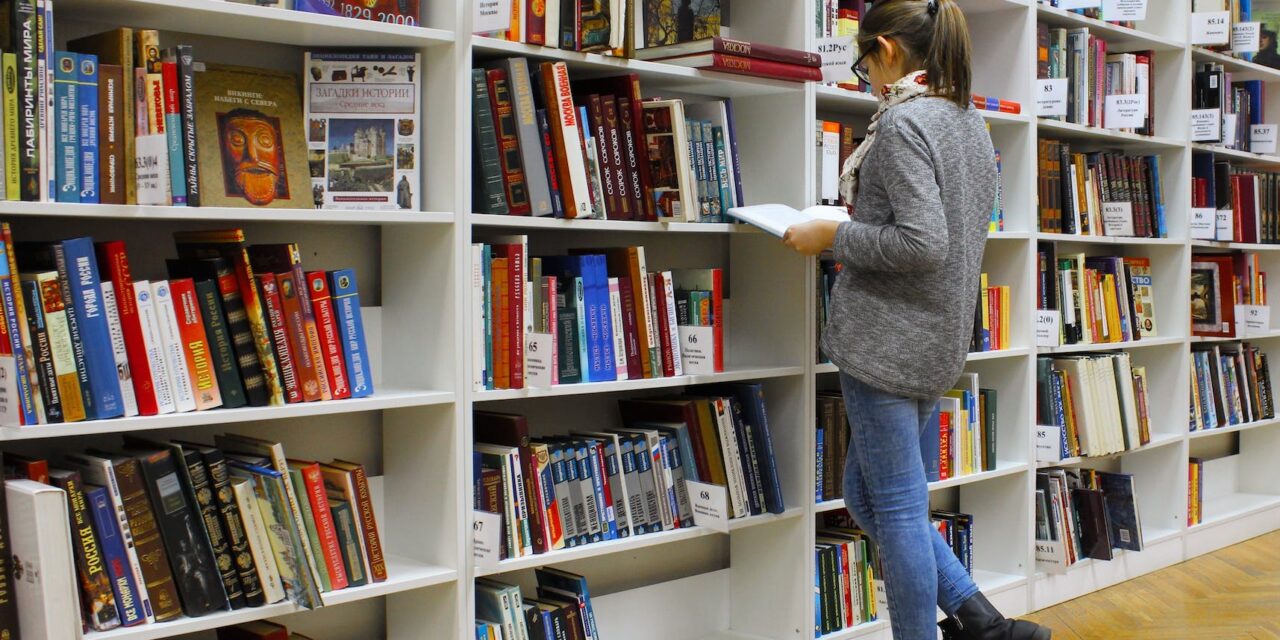Studying abroad is a dream for many students, but the cost of education can be a major obstacle. Dubai is one of the most popular destinations for international students due to its world-class universities, diverse culture, and booming economy. However, the cost of studying in Dubai can vary widely depending on the university, level of study, and course.
- Key Takeaways
- Understanding the Education System in Dubai
- Tuition Fees for Undergraduate Studies
- Tuition Fees for Postgraduate Studies
- Cost of Living in Dubai
- Scholarships and Financial Aid Available
- Student Visa and Its Costs
- Health Insurance Costs
- Additional Expenses
- Comparing Costs with Other Countries
- Conclusion
- Frequently Asked Questions
- What are some affordable universities in Dubai for international students?
- How much does it cost to study at the University of Dubai?
- Are there any public universities in Dubai for international students?
- Which is the cheapest university in Dubai for international students?
- Can international students study for free at any universities in Dubai?
- Is studying in Dubai worth the cost?
In this article, I will provide a comprehensive guide to the cost of studying in Dubai. I will cover the tuition fees for undergraduate and postgraduate studies, the cost of living in Dubai, scholarships and financial aid available, student visa and its costs, health insurance costs, additional expenses, and how the cost of studying in Dubai compares to other countries. With this information, you can make an informed decision about studying in Dubai and plan your finances accordingly.
Key Takeaways
- Studying in Dubai can be expensive, but the cost varies widely depending on the university, level of study, and course.
- In addition to tuition fees, students should consider the cost of living in Dubai, health insurance, and additional expenses.
- Scholarships and financial aid are available for international students, and the cost of studying in Dubai is generally lower compared to destinations like the US and Australia.
Understanding the Education System in Dubai
Studying in Dubai can be a great opportunity for international students, but it’s important to understand the education system before making any decisions. Here’s what you need to know:
Types of Schools
There are three main types of schools in Dubai: public, private, and international. Public schools are free for Emirati citizens and offer a curriculum based on Islamic values. Private schools offer a mix of curriculums, including American, British, and Indian, and are primarily attended by expat children. International schools are the most expensive option and offer an education that follows an international curriculum.
Curriculum
The curriculum in Dubai is diverse, with schools offering a range of options. International schools follow a curriculum that is recognized globally, such as the International Baccalaureate (IB) or the Cambridge International Examinations (CIE). Private schools may offer a mix of curriculums, while public schools follow a curriculum based on Islamic values.
School Fees
School fees in Dubai can be quite high, especially for international and private schools. According to Aetna International, fees for international schools can range from AED 12,723 ($3,463/£2,674) per year to AED 64,093 ($17,449/£13,475) per year. Private schools may also have high fees, while public schools are free for Emirati citizens.
Enrollment
Enrollment in Dubai schools typically takes place in the spring for the following academic year. International and private schools may have their own enrollment processes, which can include entrance exams and interviews. Public schools have limited spots available for non-Emirati students.
Academic Calendar
The academic calendar in Dubai typically runs from September to June, with breaks for winter and spring holidays. International schools may follow a different calendar, depending on their curriculum.
Overall, the education system in Dubai offers a diverse range of options for students, but it’s important to consider the costs and enrollment requirements before making a decision.
Tuition Fees for Undergraduate Studies
As I researched the cost of studying in Dubai, I found that tuition fees for undergraduate studies vary among universities. According to Edarabia, the average tuition fee for an undergraduate program in Dubai ranges between AED 37,500 to AED 70,000 per year. The cost of tuition fees may vary depending on the university, program, and course load.
Some universities in Dubai offer scholarships and financial aid to students who meet certain criteria. For example, the University of Dubai offers scholarships and discounts to students who excel academically or demonstrate financial need. Students can visit the university’s website to learn more about the requirements and application process.
It’s important to note that tuition fees are not the only expenses students should consider when studying in Dubai. According to Educations.com, students should also budget for living expenses such as accommodation, transportation, food, and entertainment. The cost of living in Dubai can be relatively high compared to other cities, so it’s important for students to plan accordingly.
In summary, the cost of tuition fees for undergraduate studies in Dubai varies among universities, programs, and course loads. Students should also consider other expenses such as living costs when planning their budget for studying in Dubai.
Tuition Fees for Postgraduate Studies
As a postgraduate student considering studying in Dubai, tuition fees are an essential factor to consider. The cost of postgraduate studies in Dubai varies depending on the university, program, and course duration.
According to Educations.com, tuition fees for a postgraduate program in Dubai range between 55,000 to 75,000 AED per year. However, specialized programs can cost up to AED 130,000 (USD $35,390).
It is also important to note that these fees do not include other expenses such as accommodation, transportation, and textbooks. As a result, it is essential to have a comprehensive budget plan before embarking on your postgraduate studies in Dubai.
Fortunately, some universities in Dubai offer scholarships and financial aid to postgraduate students. For example, the University of Wollongong in Dubai offers various scholarships and financial aid for postgraduate students to help cover tuition fees and other expenses.
In conclusion, when considering postgraduate studies in Dubai, it is important to research the tuition fees and other expenses associated with the program. Additionally, exploring scholarship and financial aid options can help make postgraduate studies in Dubai more affordable.
Cost of Living in Dubai
Living expenses in Dubai are generally higher compared to other cities in the world. Nevertheless, the cost of living in Dubai varies depending on an individual’s lifestyle and personal preferences.
Accommodation
The cost of accommodation in Dubai is high, and it is one of the major expenses that students need to consider. The cost of renting a one-bedroom apartment in the city center is around AED 4,000 to AED 8,000 per month, while renting a one-bedroom apartment outside the city center is around AED 2,500 to AED 5,000 per month. Sharing an apartment with other students can help reduce the cost of accommodation.
Transportation
Dubai has a well-developed transportation system, and students can choose from various modes of transportation. The cost of transportation in Dubai is relatively low compared to other cities in the world. Students can get a Blue Nol card, which offers a 50% discount on public transportation. Taxis are also available in Dubai, and the fare starts at AED 12.
Food
The cost of food in Dubai varies depending on the type of food and the place where it is purchased. Students can choose from a variety of food options, including local cuisine and international fast food chains. The cost of a meal in an inexpensive restaurant is around AED 30, while a meal in a mid-range restaurant is around AED 100.
Utilities
The cost of utilities in Dubai is relatively low compared to other cities in the world. The cost of electricity, water, and gas for a 85m2 apartment is around AED 700 per month. Internet and telephone services are also available, and the cost varies depending on the service provider and the package chosen.
Miscellaneous Expenses
There are other miscellaneous expenses that students need to consider, such as clothing, entertainment, and personal care items. The cost of clothing in Dubai varies depending on the brand and the type of clothing. Entertainment options in Dubai include cinemas, sports facilities, and shopping malls. The cost of personal care items such as toiletries and cosmetics is relatively low in Dubai.
Overall, the cost of living in Dubai is higher compared to other cities in the world. However, with proper budgeting and planning, students can manage their expenses and enjoy their stay in Dubai.
Scholarships and Financial Aid Available
Studying in Dubai can be expensive, but there are several scholarships and financial aid options available to help students cover their costs. Here are some of the options:
Scholarships
Dubai Government Scholarships
The Dubai Government offers several scholarships to international students. These scholarships cover tuition fees and other expenses, and are available for undergraduate, graduate, and postgraduate studies. Some of the scholarships include the Dubai Government Scholarship for Academic Excellence, the Dubai Islamic Bank Scholarship, and the Dubai Women’s Association Scholarship.
University Scholarships
Many universities in Dubai offer scholarships to international students based on merit, need, or both. These scholarships can cover tuition fees, accommodation, and other expenses. Some of the universities that offer scholarships include the American University in Dubai, the University of Dubai, and the Canadian University Dubai.
Financial Aid
Student Loans
Several banks in Dubai offer student loans to help cover the cost of education. These loans can cover tuition fees, accommodation, and other expenses, and are available to both local and international students. Some of the banks that offer student loans include Emirates NBD, Dubai Islamic Bank, and Abu Dhabi Commercial Bank.
Work-Study Programs
Some universities in Dubai offer work-study programs to help students cover their expenses. These programs allow students to work on campus or off campus while they study, and the earnings can be used to pay for tuition fees, accommodation, and other expenses.
Part-Time Jobs
International students in Dubai are allowed to work part-time while they study. This can help them cover their expenses and gain work experience at the same time. However, students should ensure that they have a valid work permit and that their work does not interfere with their studies.
In conclusion, studying in Dubai can be expensive, but there are several scholarships and financial aid options available to help students cover their costs. Students should explore these options and choose the one that best suits their needs.
Student Visa and Its Costs
Studying in Dubai requires a student visa, which allows students to stay in the UAE for the duration of their studies. The visa is issued by the General Directorate of Residency and Foreigners Affairs (GDRFA) and is valid for one year.
To apply for a student visa, students must have a valid admission offer from a UAE university or college. The visa application process can be facilitated by the Student Affairs offices at universities.
The cost of a student visa can vary depending on the university and the duration of the program. According to Murdoch University Dubai, the visa fee for the academic year 2023-2024 is AED 4,140. Additionally, students are required to pay a refundable visa deposit of AED 1,000, which will be returned to them upon completing the visa exit process.
It’s important to note that students are also required to have a valid Emirates ID card, which costs an additional fee. According to the same source, the Emirates ID card fee is AED 370 for students.
In addition to the visa and Emirates ID card fees, students must also provide evidence of funds to cover their living expenses during their stay in Dubai. This can include bank statements or a letter of financial support from a sponsor.
Overall, the cost of obtaining a student visa to study in Dubai can be expensive, but it’s a necessary step for international students who wish to pursue their studies in the UAE.
Health Insurance Costs
As an international student in Dubai, it is important to have health insurance to cover any unexpected medical expenses. In fact, it is mandatory for all residents, including expats, to have health insurance in Dubai.
The cost of health insurance in Dubai varies depending on the type of plan you choose, your age, and your medical history. According to Expat Den, expat health insurance is the best option for foreigners living in Dubai. This type of insurance covers a wide range of medical services, including hospitalization, outpatient care, and emergency treatment.
The average cost of individual health insurance in Dubai ranges from AED 5,000 to AED 10,000 per year, while family health insurance plans can cost between AED 17,000 and AED 33,000 per year. Group health insurance plans for employees can cost between AED 1,500 and AED 5,000 per employee per year, and traveler’s health insurance plans can cost between AED 800 and AED 2,000 per year. Senior citizen health insurance plans can cost between AED 4,000 and AED 20,000 per year. These estimates are based on data from Adam Fayed.
It is important to note that fines are imposed for residents who do not have health insurance in Dubai. In Abu Dhabi, the fine is AED 300 per person per month, while in Dubai, it is AED 500 per person per month. The government will not renew visas or grant residency without proof of health insurance.
Overall, the cost of health insurance in Dubai can be quite expensive, but it is necessary to protect yourself and your family from unexpected medical expenses. It is important to research and compare different insurance plans to find the best option for your needs and budget.
Additional Expenses
Aside from tuition fees, studying in Dubai also entails additional expenses that students need to consider. These expenses include accommodation, transportation, food, and other miscellaneous expenses.
Accommodation
Dubai offers a wide range of accommodation options for students, from dormitories to apartments. The cost of accommodation varies depending on the location, type of accommodation, and amenities. According to Edarabia, the average cost of a one-bedroom apartment in Dubai is around AED 3,500 to AED 5,000 per month. Students can also opt to stay in dormitories or student housing, which can cost around AED 1,500 to AED 3,000 per month.
Transportation
Dubai has a well-developed transportation system that includes buses, trains, and taxis. Students can purchase a Nol card, which is a smart card that can be used to pay for public transportation. The cost of transportation depends on the distance and mode of transportation. According to Career360, the average cost of transportation in Dubai is around AED 400 to AED 600 per month.
Food
Dubai is known for its diverse cuisine, and students can choose from a variety of affordable options. The cost of food depends on the type of cuisine and the location. Students can opt to cook their meals or eat at restaurants. According to Educations.com, the average cost of food in Dubai is around AED 1,200 per month.
Miscellaneous Expenses
Other miscellaneous expenses include textbooks, stationery, health insurance, and leisure activities. Students should also consider the cost of visas and travel expenses. The cost of these expenses varies depending on the individual’s needs and preferences.
Overall, studying in Dubai can be expensive, but students can manage their expenses by choosing affordable options and budgeting wisely.
Comparing Costs with Other Countries
When it comes to studying abroad, one of the most important factors to consider is the cost. Dubai is a popular destination for international students, but how does it compare to other countries in terms of cost?
Firstly, let’s compare the cost of living in Dubai with other popular study destinations. According to a report by Collegedunia, the estimated monthly off-campus accommodation cost for international students in Dubai is around 7,797 AED (1.75 lakhs INR). This is relatively high compared to other countries such as Malaysia, where the average monthly rent is around 1,000 MYR (220 USD).
In terms of tuition fees, Dubai is generally more expensive than countries such as Malaysia and India. For example, in Dubai, the tuition fees for an undergraduate program range between 37,500 to 70,000 AED per year, while in Malaysia, the average tuition fees for an undergraduate program are around 20,000 MYR (4,400 USD) per year. Similarly, in India, the average tuition fees for an undergraduate program are around 500,000 INR (6,700 USD) per year.
However, it’s worth noting that Dubai has a range of scholarships and financial aid options available for international students, which can help to offset the cost of tuition fees. Additionally, Dubai offers a high quality of education and a multicultural environment, which can make it a worthwhile investment for students.
Overall, while Dubai may be more expensive than some other study destinations, it’s important to consider the overall value that it can offer in terms of education, opportunities, and experience.
Conclusion
Based on my research and analysis, it is clear that studying in Dubai can be a great option for international students. The city boasts a range of prestigious universities and a cosmopolitan lifestyle that can provide a unique and enriching educational experience.
However, it is important to note that the cost of studying and living in Dubai can be quite high, especially in comparison to other destinations. Tuition fees for undergraduate programs can range from 37,500 to 70,000 AED per year, while postgraduate programs can cost between 55,000 to 75,000 AED per year. Additionally, students should budget an extra 1,200 AED (330 USD) per month for general living expenses.
Despite these costs, there are also opportunities for scholarships and financial aid that can help offset the expenses of studying in Dubai. Prospective students should research these options and apply early to increase their chances of receiving support.
Overall, studying in Dubai can offer a unique and rewarding educational experience for those willing to invest in it. With careful planning and budgeting, international students can make the most of their time in this vibrant and dynamic city.
Frequently Asked Questions
What are some affordable universities in Dubai for international students?
Dubai offers an abundance of higher education opportunities, including affordable universities for international students. Some of the affordable universities in Dubai for international students are Middlesex University Dubai, Heriot-Watt University Dubai, and University of Wollongong in Dubai. These universities offer a wide range of undergraduate and postgraduate programs at affordable tuition fees.
How much does it cost to study at the University of Dubai?
The tuition fee at the University of Dubai varies depending on the program of study. For undergraduate programs, the tuition fee ranges from AED 54,000 to AED 72,000 per year. For postgraduate programs, the tuition fee ranges from AED 66,000 to AED 84,000 per year. In addition to tuition fees, international students will also need to budget for living expenses such as accommodation, food, and transportation.
Are there any public universities in Dubai for international students?
Dubai does not have any public universities that are open to international students. All universities in Dubai are private institutions, and international students are required to pay tuition fees to attend.
Which is the cheapest university in Dubai for international students?
The cost of tuition fees varies depending on the program of study and the university. However, some of the cheapest universities in Dubai for international students are Amity University Dubai, Manipal University Dubai, and University of Bolton Academic Centre. These universities offer a range of undergraduate and postgraduate programs at affordable tuition fees.
Can international students study for free at any universities in Dubai?
No, international students cannot study for free at any universities in Dubai. All universities in Dubai are private institutions, and international students are required to pay tuition fees to attend.
Is studying in Dubai worth the cost?
Studying in Dubai can be a worthwhile investment for international students. Dubai offers an abundance of higher education opportunities, with globally respected international university campuses and colleges. The quality of education, combined with the multicultural environment and the opportunity to gain work experience in Dubai, can make studying in Dubai a valuable experience for international students. However, students should carefully consider the cost of tuition fees and living expenses before deciding to study in Dubai.

























